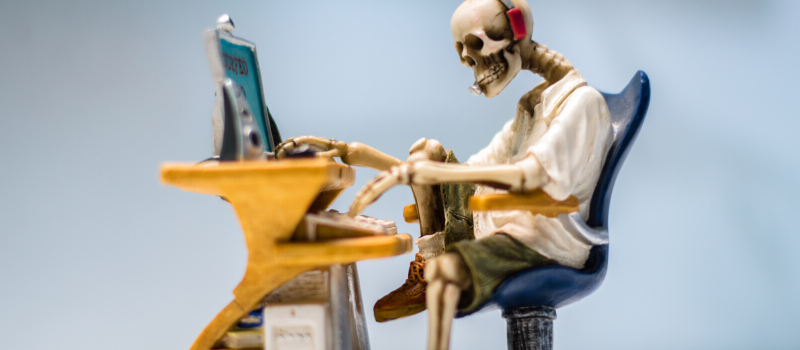Some believe there may now be three certainties in life; death, taxes and…social media. Social media is becoming a larger part of our daily lives, and for some individuals, their identities. It can help us capture, record and flaunt those timeless moments. So, this begs the question, what exactly happens to our social media accounts after we pass away?
Do I even own my account and content?
While as individuals we have the right to control, use and access digital assets (photos, original memes, witty content…) that we have created, when we place those items on our social media, it can be a different story.
Access to many of our digital assets is provided through platforms, such as Facebook or Twitter. These platform providers have their own sets of terms and conditions which govern control of your digital assets that you accept and agree to be bound by when you sign up.
So even while you are alive, when you clicked “agree” to those terms and conditions in the excitement of starting a new social media account, you have agreed to be bound by a contract in which you most likely gave up certain rights as to those digital assets.
With the majority of large social media platforms the provider actually retains ownership and control of your social media account, even after your death. Additionally, it is likely that the terms we sign include provisions which grants the platform owner rights in what we post, including rights of ownership. In turn, that means the platform owners’ are likely to have the ability to sell or licence your digital assets to third parties. There is nothing you can do about that, inexpensively.
Can I pass my accounts to beneficiaries?
So, we may own our digital assets and social media content but with limitations based on each social media platform’s terms and conditions.
Most of the popular social media platform providers have a set policy and procedure when an account owner passes away.
Generally speaking, when notified of the account holder’s passing, a social media provider will delete and wipe the deceased’s account. This deletion policy will be outlined in the terms and conditions.
But we often see, especially in the case of unexpected or high profile deaths, that social media accounts are seen as a memorial for that account owner and their family, executor or other legal representatives may want to keep the account open – perhaps for a considerable length of time.
In this case, a few platform providers have begun to allow restricted access to some of the aspects of a deceased account holder’s social media profile. This isn’t a blanket rule for all social media accounts, so not all allow this level of flexibility.
Let’s take a quick glimpse into some of the practice and procedures seen in our most popular social media platforms:
- Twitter: Bad luck! The company will likely deactivate or delete the account. Twitter specifies that no one, including beneficiaries or heirs, will receive access to the deceased user’s account.
- Facebook: Restricted Access. Account holders can specify whether they wish their account to be permanently deleted when they die or nominate someone to take partial control of the account. The nomination is through the Facebook platform, not in your will.
- Instagram: No Change! The account holder’s profile will stay on the site, but no one can change or log into the profile.
- Gmail: Closure after inactivity. Account Holders can set up an ‘Inactive Account Manager’ to delete their account. This will trigger after a period of inactivity.
- Apple: No way to transfer! iTunes and iCloud accounts are non-transferrable after an account holder passes away, nor can they be merged with another user’s account (like an executor or beneficiary).
With these rules in mind, and with a practical mindset in place, a family member or executor may simply choose not to notify the service provider of your passing, at least until they have made provision for how to deal with the account and its content.
Conclusions
- You may not “own” your social media and online accounts and the content within them in quite the way you believe you do.
- You should definitely make provision in your Will for online accounts. But remember those provisions are subject to the particular terms and conditions you agreed to.
- If your executor notifies an online service provider you are deceased your account may simply be deleted!
- If you value the content you have on an online account you should back it up – probably offline.
- Consider providing login details to trusted family or friends if ongoing access and operation of your online account is desirable when you aren’t personally able to use it.
For more information on this or to get your estate planning in order please contact a member of our Wills, Estates, Planning, Structuring team.


 Temporary measure for electronic signing under the Corporations Act
Temporary measure for electronic signing under the Corporations Act